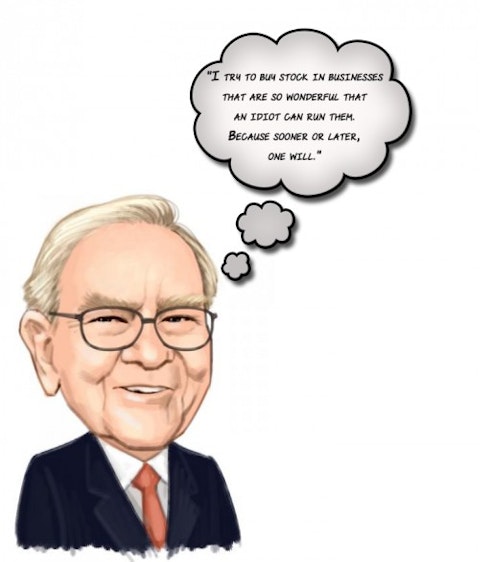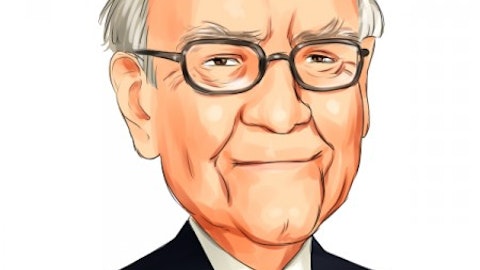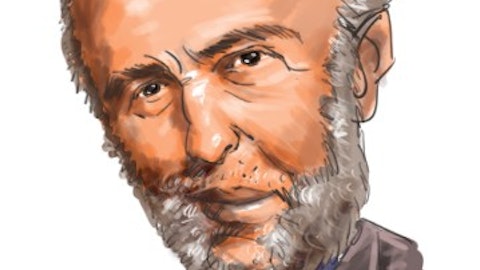Warren Buffett’s annual letters are better reads than most hedge funds’ investor letters. Especially rookie investors can learn a lot by reading them. Surprisingly this year’s investor letter had a very good advice followed by a bad advice for disciplined investors. We have seen this bad advice by Buffett repeated several times before and decided to pen this article. Yes, we are critical of one of our favorite investors who implies that his top picks such as Wal-Mart Stores Inc. (NYSE:WMT), Wells Fargo & Co (NYSE:WFC) and The Coca-Cola Co (NYSE:KO) will underperform index funds. Let’s first start with Buffett’s good advice:

“Stock prices will always be far more volatile than cash-equivalent holdings. Over the long term, however, currency-denominated instruments are riskier investments – far riskier investments – than widely-diversified stock portfolios that are bought over time and that are owned in a manner invoking only token fees and commissions. That lesson has not customarily been taught in business schools, where volatility is almost universally used as a proxy for risk. Though this pedagogic assumption makes for easy teaching, it is dead wrong: Volatility is far from synonymous with risk. Popular formulas that equate the two terms lead students, investors and CEOs astray.
It is true, of course, that owning equities for a day or a week or a year is far riskier (in both nominal and purchasing-power terms) than leaving funds in cash-equivalents. That is relevant to certain investors – say, investment banks – whose viability can be threatened by declines in asset prices and which might be forced to sell securities during depressed markets. Additionally, any party that might have meaningful near-term needs for funds should keep appropriate sums in Treasuries or insured bank deposits.
For the great majority of investors, however, who can – and should – invest with a multi-decade horizon, quotational declines are unimportant. Their focus should remain fixed on attaining significant gains in purchasing power over their investing lifetime. For them, a diversified equity portfolio, bought over time, will prove far less risky than dollar-based securities.”
Unconventional and great advice! Buffett is right about the fact that most investors are short-term oriented and this near-sightedness hurts their returns. Most people think that by watching over their investments very closely and taking action when markets decline they do the right thing. Short-term volatility isn’t such a big thing if you don’t have short-term funding needs. I want to point out a very important observation here though. Warren Buffett took the time and qualified his recommendation by emphasizing that “any party that might have meaningful near-term needs for funds should keep appropriate sums in Treasuries or insured bank deposits”. Why is this important? Because this shows that, when necessary, Buffett takes the time to clarify his recommendations. Now, we are going to share Buffett’s bad advice. Here is what Buffett also said in the annual letter:





